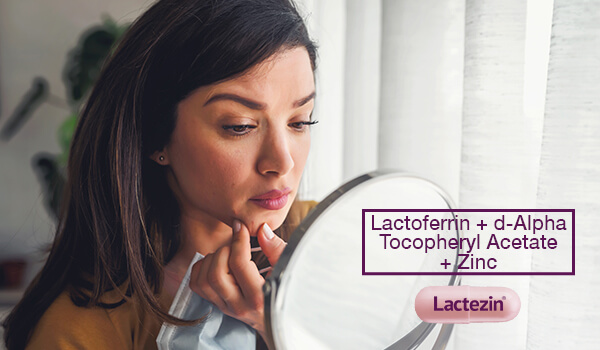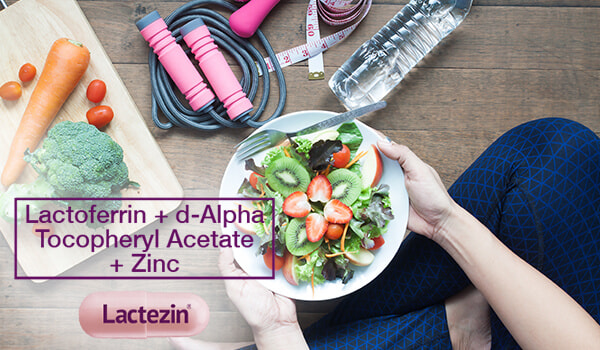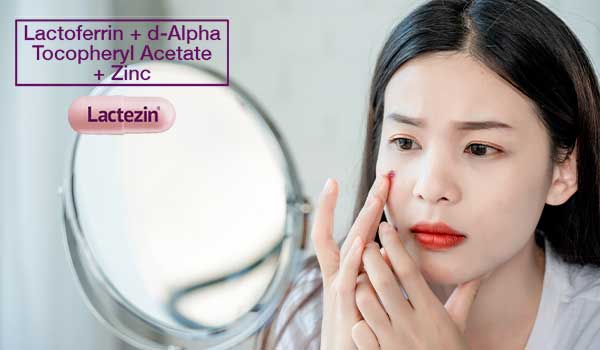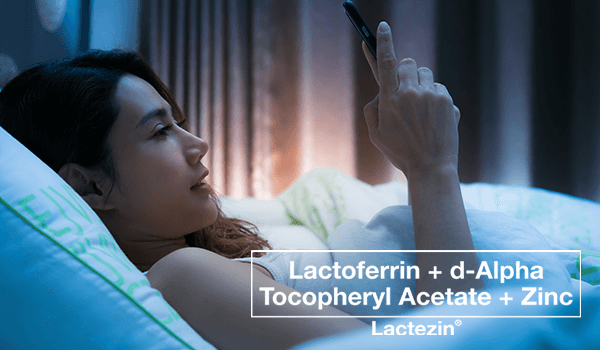Pandemic-Related Stress and Its Damaging Acne Effects

Pandemic acne isn’t another buzzword and it’s definitely not just you. If you’ve been experiencing breakouts as worse as the ones you’ve had in your teens, you can blame Covid-19 for that. The skyrocketing levels of stress, combined with occlusive protective masks and upended daily routines, can have negative consequences for the skin.
How stress affects acne
-
Stress hormones
Because of oxidative stress, skin’s collagen will degenerate. Cell shrinkage and tissue death happens. As a result, skin loses its elasticity, suppleness, and ability to regenerate new, healthier cells. This can cause unsightly wrinkles, fine lines, and dull skin texture.
-
Lack of sleep
On top of the stress itself, the ways we cope with it can contribute to the breakout situation too. The late night Netflix binges that keep you from sleeping, for one. Sleep deprivation is a major acne trigger. Lack of sleep has been shown to disrupt hormone levels, which may unsettle the chemical balance in your skin that wards off pimples. Sleep is also your skin’s dedicated time for repair, which can contribute to inflammation.
-
Blue light
Speaking of screens, all the screen time we get from being on our laptops all day then on our phones or tablets at night actually affects our skin, not just our eyes. Blue light from screens damages the skin’s collagen and elastin through oxidative stress. This happens when flavin, a naturally occurring group of pigments in the skin, absorbs the emitted blue light. The result of this reaction creates free radicals that often cause serious damage to the skin. Prolonged blue light exposure may lead to premature skin, aging, hyperpigmentation, a weakened skin barrier, and slower healing for the skin.
Read more: Your Screen and Your Skin: Does Blue Light Affect Skin Health? -
Diet
Many of us have turned to our favorite comfort food for, well, comfort when we are stressed. While there is no harm in the occasional treat, too much may worsen your acne situation. The high-carb / high-sugar that we often crave have a high glycemic index, which has been linked to acne. These foods increase levels of a hormone called insulin-like growth factor (IGF-1), which is suggested by studies to drive sebum production.
-
Maskne
On top of these, there’s also acne mechanica, which is caused by wearing face masks, though you may be more familiar with it as ‘maskne’. These small, inflamed bumps are caused by the heat that gets trapped from prolonged friction or occlusion. Read more about how face masks cause maskne and how you can prevent them: Why Face Masks Are Giving You Acne and How To Avoid It
How to Prevent and Treat Stress Acne
While the pandemic and our other sources of stress may not be going away anytime soon, know that you can take steps to keep stress acne at bay.
-
Get on a schedule
Schedules aren’t just for managing your to-do’s; following one may help with your acne situation. Plus, incorporating stress-reducing activities that decrease cortisol production like exercise, mindfulness, yoga, or deep breathing is good for your skin and your overall health. Choose an activity you can do and stick to your schedule, such as waking up at the same time, following your skincare routine, and getting dressed for work every morning.
-
Adjust your skincare routine
Speaking of skincare, you’ll want to switch up your products to address your acne problem. Wash with a salicylic acid cleanser that gently exfoliates and clears pores. If you’ll be using actives like Vitamin C, AHA, or retinol, don’t use more than two in one day. Thirdly, don’t mix, blend or layer actives. For example, if using Vitamin C in the morning, use another active like a light Retinol or AHA in the evening. Then, moisturize with a lightweight moisturizer and don’t skip sunscreen, even when you’re indoors.
Also, do your best to not touch your face. Out of habit or stress, many of us tend to touch or squeeze acne, which can worsen it and lead to scarring and discoloration. -
Choose Your Mask Wisely
A lot of masks out there are being sold, all attractive-looking with various cuts and designs. While they do look nice, know that the bigger consideration to factor in is the kind of material and customized fit a mask can provide. Get one that has a snug fit, made of soft, natural, breathable material. Avoid synthetics like polyester, nylon, and rayon as these materials can make you sweat faster.
-
Talk to a dermatologist
Aside from acne, stress may set off various inflammatory skin conditions like rosacea. So if you treat your condition as if it's an acne flare when it isn’t, you may end up making matters worse. If your breakouts don’t improve, make a virtual appointment with a dermatologist for a proper diagnosis and treatment plan.
Help treat and prevent acne with Lactoferrin + d-Alpha Tocopheryl Acetate + Zinc (Lactezin)
With so many skin stressors these days, acne is prone to happen. But you can help combat it given the right and trusted skincare product. Start with Lactoferrin + d-Alpha Tocopheryl Acetate + Zinc (Lactezin). It has ingredients that work together to help treat pimples and keep them from coming back.
Lactoferrin has antibacterial and anti-inflammatory properties that protect the skin from infection and irritation. d-Alpha Tocopheryl Acetate is a very potent antioxidant that helps eliminate skin-damaging free radicals. Zinc helps regulate skin’s natural moisture to maintain a healthy appearance. With continued intake of twice a day for 2 weeks, Lactoferrin + d-Alpha Tocopheryl Acetate + Zinc (Lactezin) helps fight acne, improves skin immunity, and maintains healthy skin from within.
Lactoferrin + d-Alpha Tocopheryl Acetate + Zinc (Lactezin) is available in all leading drugstores nationwide. You may also purchase online through Lazada and Shopee.
SOURCES:
https://www.sleep.org/how-sleep-improves-your-skin/
https://www.elle.com/beauty/makeup-skin-care/a32344537/maskne-is-the-new-acne-from-face-masks/
https://www.bcm.edu/news/avoid-face-irritation-acne-while-wearing-masks
https://www.ncbi.nlm.nih.gov/pmc/articles/PMC3257617/


